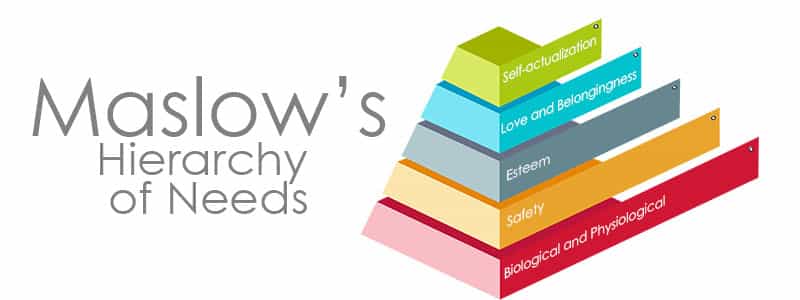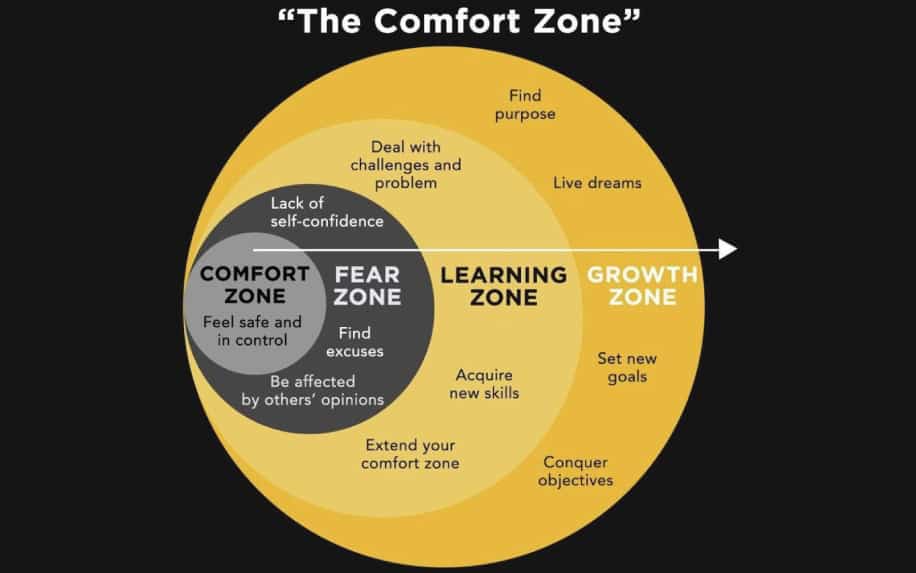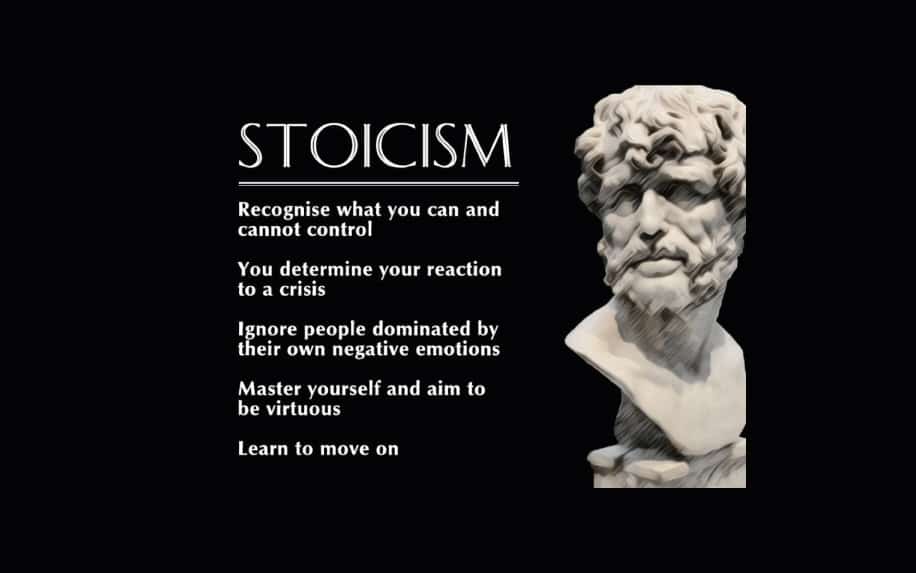The topic of self development skills is a growing point of interest for people worldwide. Thanks to advances in technology and science, we can apply tested methodology to carve a path to success.
We have access to virtually the entire human knowledge with a simple click. And if you look up self development skills, you will have a flood of results and answers for all the questions. But this is not the focus here. The main focus here is where to start.
It can prove challenging to be able to maintain your current life routine, let alone of looking up and planning how to improve it—and keeping up with this said plan.
That is the goal of this article, to help you to obtain an understanding of the concept of self development skills, what you should ask, and what you should address.
Let’s start with the basics.
Table of Contents
What Are Self Development Skills?
In 1943, Abraham Maslow, an American psychologist, created and proposed the hierarchy of needs, which is to be known later as Maslow’s Hierarchy of Needs. Most contemporary programs and businesses involved with self development skills still draw heavily from this model.

Self development skills are a set of activities and tasks that help you achieve a sense of mindfulness, productivity, awareness, and identity.
Self development skills vary from one person to the next—depending on many variables, such as age, fitness, free time, and even work nature and environment—that aim to help you reach your full potential.
To translate the activities of self development skills, you can focus on improving current skills or training on new ones.
It’s also worth investing in a personal hobby or talent, expanding your knowledge by pursuing higher education or reading beneficial books. Your goal should be improving self-awareness and self-knowledge, or improving fitness and overall health status.
Why Do We Need Self Development Skills?
Common human behavior in life and work nowadays focuses on finding a problem to every solution. On the other hand, practitioners of self-development skills are trained to find a solution to every problem.
Sometimes, it can even go the extra mile of anticipating problems and proactively counter expected challenges.
Self-development skills allow individuals to reach a point where they can tweak with their given lot to improve upon their quality of life, abolishing the mindset of “this is how things are” and instilling the more effective “this is how things should be” instead.
Done right, self development skills should allow people to reach a point of balance, to find one’s center physically, mentally, and career-wise. In other words, it can be a realistic, substantial approach to achieve individual harmony.
How Do Self Development Skills Improve the Quality of Life?
The ultimate goal of self development skills is to improve the quality of the individual. Self Development skill works to cover the areas that require improvement, if done right.
Expand Your Comfort Zone
It is important to have a comfort zone, but it is more important to not be afraid to step out of it every one and a while. A good set of self development skills should assist you into venturing outside this boundary—in healthy dosages, of course.
You should not spread yourself too thin.
The occasional stroll outside your comfort zone will make you more adaptive and makes the process of gaining, and improving upon current, skills much easier. It will not be an exaggeration to say that this is the first step to any successful set of self development skills.

Help You Gain a Better Understanding of Yourself
One of the most dreaded questions—and a running joke in the World of recruitment—is where do you see yourself in x amount of years?
It is hard to predict what the future holds for someone if they barely have a notion of what they are and the current time, to begin with.
“You cannot learn a thing you think you know.” This is a paraphrase of one of the major tenets of Stoicism. In the process of improving yourself, a tad degree of stoicism—and positive realism—is direly needed.

An effective module of self development skills should prepare one mentally to obtain a better understanding of themselves; you need to know who you are, what are you good at? What do you WANT to be good at, and what are your weaknesses.
Self development skills utilize your capacity not to only find answers, but to find the right answers, as well.
Exercise a Realistic Approach to Goals and Realistic Methods to Execute Them
“Dream big, start small, act now.” — Robin Sharma
You may find this formula repeated by many self-help and life coaches; there is a reason for that: it works. A closer look at this formula should be insightful:
Start Small
A common practice for smokers who are trying to quit smoking is the I will start from the beginning of the next week/month/week approach. To each his own, but it is no secret that this practice seldom yields any substantial results—even though research shows that only cold turkey quitters’ success rate is 3 to 5%.
Self development skills should develop the mindset of building blocks of actions.
Most people trying to maintain a positive habit feel bad when they break their streak, but a person with a set of self-development plan always finds a way to tweak and improve upon their system.
In the end, nothing is written in stone.
Act Now
Self development skills create an initiative and a self-driven personality. By time, you will find that you will start to take, by your own accord, brisk steps towards achieving your goals.
The sooner you start acting on your current task, the better and faster you will be prepared for the next level of the process of achieving your goal.
This simple sequence roots a successful implementation of self development skills; it is easier said than done, but surely it is immensely rewarding.
Self Development Skills Teach You Adaptability and Being Quick-On-Your-Feet
As the Greek philosopher, Heracles said, “Change is the only constant in life.”
This fact is what shapes our modern world—and successfully helped build most of it. For self development skills to be succinct, it is necessary to allow the individual to grow into adaptability and to be able to change the way they operate.
Being adaptive is a strength that can be the gateway to the utmost potential of an individual.
Many people face anxiety and issues related to life and work due to the rigidity of our minds when it comes to responding to change.
Being able to be quick-on-your-feet helps to reach this point where you can acknowledge problems easily, and acknowledge and devise solutions for them as easily done.
It is common for people who are starting on the path of self-development to reach a point of feeling burnt out. As all fruitful journeys, there has to be an end to this trek, right?
Do not worry if you feel that you are still dreading miles that you need to cover when you think that you did not finish anything yet. You still have time, and you can still work around to reach your goal.
Sometimes, the path end of the journey is reaching the point where self-development becomes a mindset rather than a singular purpose.
After all, consistency is the key.
Self Development Skills Helps You Integrate with Society and Family in a Healthy Way
As achievements pile up, it is bound that you feel more self-confident and harness more confidence in your abilities.
Self development skills help you gain a bird-eye view over issues.
This is extremely helpful, especially in conflict resolution. Rather than just seeing your point of view, you will be able to walk a mile in everyone’s shoes—especially if the other person used to be in your place or struggling with something you used to struggle with.
Being able to see things through different eyes generally broadens your scope and outlook on life.
A perpetual sense of development helps you to resolve conflict in healthier ways and seek mutually beneficial solutions rather than counterproductive measures that most people take, especially in a workplace environment.
20 years ago, the notion of self help and self development skills was alien to our minds.
But now, we can see the successful fruition of such efforts in prominent names such as Steve Jobs, Bill Gates, Elon Musk, and many other names that took to their hands the matter of making themselves better people on all the necessary aspects.
And when things seem to be too overwhelming, always focus on Sharma’s quote: “Dream big, act small, start now.”
And positive effort, however small it is, is in the forward direction.
15 Must-Have Skills for Self-Improvement This Year
As we embark on a new year, it’s natural to reflect on our personal growth and set goals for self-improvement. Mastering certain key skills can significantly impact your life, leading to increased happiness, success, and fulfillment. Here are 15 essential skills to consider prioritizing in your self-improvement journey this year:
1. Communication:
- Express yourself clearly and concisely.
- Practice active listening and empathy.
- Develop strong writing and public speaking skills.
2. Emotional Intelligence (EQ):
- Increase self-awareness and manage your emotions effectively.
- Build strong relationships by being empathetic and understanding.
- Navigate conflicts effectively and resolve them constructively.
3. Time Management:
- Set SMART goals and prioritize tasks effectively.
- Utilize time management tools and strategies.
- Develop strong organizational skills and minimize distractions.
4. Goal Setting:
- Define your goals clearly and break them down into actionable steps.
- Develop a plan and track your progress regularly.
- Stay motivated and celebrate your achievements.
5. Resilience:
- Develop a growth mindset and embrace challenges as opportunities for learning.
- Learn from your mistakes and setbacks.
- Develop healthy coping mechanisms for dealing with stress and adversity.
6. Problem-Solving:
- Analyze situations logically and identify root causes.
- Brainstorm creative solutions and consider various perspectives.
- Choose the most effective solution and implement it with confidence.
7. Adaptability:
- Be open to change and new experiences.
- Learn to adjust your approach and strategies as needed.
- Embrace uncertainty and be comfortable navigating unfamiliar situations.
8. Decision-Making:
- Gather relevant information and assess the pros and cons of each option.
- Consider your values and priorities when making decisions.
- Be confident in your choices and learn from your experiences.
9. Creativity and Innovation:
- Think outside the box and challenge the status quo.
- Develop innovative solutions to problems and challenges.
- Express yourself creatively through art, music, writing, or other forms.
10. Learning Agility:
- Be open to new ideas and information.
- Embrace continuous learning and development.
- Adapt your skills and knowledge to stay competitive in a rapidly changing world.
11. Financial Literacy:
- Develop a budget and track your income and expenses.
- Learn about investing and saving for your future.
- Make informed financial decisions based on your goals and priorities.
12. Physical Health:
- Engage in regular physical activity and exercise.
- Eat a healthy diet and prioritize sleep.
- Develop healthy habits and routines to promote physical well-being.
13. Mental Health:
- Practice mindfulness and meditation to manage stress and anxiety.
- Seek professional help when needed to address mental health concerns.
- Develop healthy coping mechanisms and build a strong support network.
14. Digital Literacy:
- Stay informed about the latest technology trends.
- Utilize digital tools and platforms effectively.
- Protect your online privacy and security.
15. Social Responsibility:
- Be aware of your impact on the environment and social issues.
- Contribute to positive change and make a difference in your community.
- Live a life of purpose and integrity.
By focusing on developing these essential skills, you can unlock your full potential and achieve remarkable progress in various aspects of your life. Remember, self-improvement is a continuous journey, not a destination. Embrace the process, celebrate your achievements, and never stop learning and growing.
Developing Key Skills: A Step-by-Step Guide
Mastering key skills takes dedication and practice, but the rewards are immense. Whether you’re aiming for personal growth, career advancement, or simply navigating life’s challenges, cultivating these essential abilities empowers you to unlock your potential and achieve your goals. Let’s break down how to develop four crucial skills with step-by-step advice:
1. Communication:
Step 1: Active Listening:
- Pay close attention: Focus on the speaker’s words, body language, and emotions.
- Ask clarifying questions: Ensure you understand their message by asking relevant questions.
- Paraphrase and summarize: Reflect on what you heard to demonstrate understanding and encourage elaboration.
Step 2: Clear and Concise Expression:
- Organize your thoughts: Structure your message logically and focus on key points.
- Use simple language: Avoid jargon and technical terms unless necessary.
- Vary your tone and pace: Keep your audience engaged with dynamic delivery.
Step 3: Practice & Feedback:
- Seek opportunities to practice: Engage in conversations, participate in discussions, and deliver presentations.
- Record yourself and analyze your communication: Identify areas for improvement and adjust your approach.
- Ask for feedback: Seek constructive criticism from trusted friends, colleagues, or mentors.
2. Emotional Intelligence (EQ):
Step 1: Self-Awareness:
- Identify your emotions: Pay attention to your physical and mental reactions to situations.
- Understand your triggers: Recognize what causes specific emotions and how they affect your behavior.
- Practice mindfulness: Engage in activities like meditation or journaling to enhance self-awareness.
Step 2: Managing Emotions:
- Develop healthy coping mechanisms: Find constructive ways to deal with difficult emotions, such as exercise, relaxation techniques, or creative expression.
- Challenge negative self-talk: Identify and replace negative thoughts with positive affirmations.
- Practice self-compassion: Be kind to yourself and accept that experiencing emotions is a normal part of being human.
Step 3: Empathy and Social Skills:
- Actively listen to others: Pay attention to their emotions and perspectives.
- Show genuine interest: Ask questions and encourage others to share their feelings.
- Respond with understanding and compassion: Offer support and validation without judgment.
3. Adaptability and Resilience:
Step 1: Develop a Growth Mindset:
- Embrace challenges: View them as opportunities for learning and growth.
- Focus on progress, not perfection: Celebrate your achievements, learn from mistakes, and move forward.
- Be open to new ideas and experiences: Embrace change and adapt your approach as needed.
Step 2: Build a Strong Support Network:
- Surround yourself with positive and supportive individuals who can offer encouragement and guidance during difficult times.
- Seek professional help when needed: Therapists, counselors, or coaches can provide valuable tools and strategies for coping with challenges.
- Engage in activities that promote well-being: Exercise, healthy eating, and relaxation techniques can boost your overall resilience.
Step 3: Practice Problem-Solving:
- Identify the problem: Clearly define the issue you are facing.
- Brainstorm potential solutions: Consider various options and assess their feasibility.
- Choose the most effective solution: Evaluate each option based on its potential benefits and risks.
- Implement your solution: Take action and monitor the results.
- Adapt and adjust as needed: Be flexible and willing to modify your approach based on new information or circumstances.
4. Time Management:
Step 1: Set Clear Goals:
- Determine what you want to achieve in specific timeframes.
- Prioritize your tasks based on their importance and urgency.
- Create a realistic schedule with deadlines and allocate time for each activity.
Step 2: Eliminate Distractions:
- Identify and minimize distractions like social media notifications, phone calls, or clutter.
- Utilize tools like time management apps or website blockers to stay focused.
- Work in a quiet and organized environment.
Step 3: Delegate and Outsource:
- Learn to delegate tasks to others when possible.
- Consider outsourcing tasks that fall outside your expertise or take up too much time.
- Focus your efforts on activities that contribute most to your goals.
Step 4: Track and Review:
- Monitor your progress and identify areas for improvement.
- Adjust your schedule and strategies as needed to optimize your productivity.
- Celebrate your achievements and reward yourself for staying on track.
Additional Tips:
- Seek feedback: Ask trusted friends, colleagues, or mentors for constructive criticism to identify areas for improvement.
- Join a community: Surround yourself with like-minded individuals who share your goals and can offer support and accountability.
- Celebrate your progress: Acknowledge and reward yourself for your accomplishments to maintain your motivation.
Resources:
- Books: “The 7 Habits of Highly Effective People” by Stephen Covey, “Mindset: The New Psychology of Success” by Carol Dweck
- Websites: Harvard Business Review, Mind Tools, The Muse
- Online Courses: LinkedIn Learning, Udemy, Coursera
Remember, developing key skills is a continuous process. Be patient, persistent, and celebrate your progress along the way. By implementing these steps and seeking resources like books, online courses, or workshops, you can unlock your full potential and experience the transformative power of yourself. If you’re looking for additional support, platforms like UPSkillsTutor can provide valuable resources and guidance to enhance your learning journey.
Self Development Skills: Frequently Asked Questions (FAQs)
Q: How long does it take to develop these skills?
A: There is no one-size-fits-all answer to this question. The time it takes to develop key skills will vary depending on your individual learning style, prior experience, and the specific skills you are focusing on. However, with dedication and consistent practice, you can see significant improvements within a few months.
Q: What are some common challenges people face when developing new skills?
A: Some common challenges include:
- Lack of motivation: Staying committed and motivated can be difficult, especially when facing setbacks.
- Time constraints: Finding and dedicating time for practicing new skills can be challenging amidst busy schedules.
- Fear of failure: Many people hesitate to start due to the fear of making mistakes or not achieving their desired results.
- Lack of resources: Access to resources like training materials, coaching, or mentors can be limited.
Q: How can I overcome these challenges?
A: Here are some tips for overcoming common challenges:
- Set SMART goals: Create specific, measurable, achievable, relevant, and time-bound goals to stay on track.
- Break down complex skills into smaller, manageable steps.
- Find a learning buddy or join a support group.
- Reward yourself for your progress.
- Seek help from a coach or mentor.
- Don’t be afraid to fail: View mistakes as opportunities to learn and grow.
Self Development Skills: Conclusion
Developing key skills is a valuable investment in your personal and professional growth. By incorporating the strategies and insights shared in this article, you can embark on a transformative journey of self-improvement and unlock your full potential.
Remember, the most important factors are consistent effort, a positive mindset, and a willingness to learn and adapt. Embrace the challenges, celebrate your achievements, and enjoy the process of becoming the best version of yourself.


